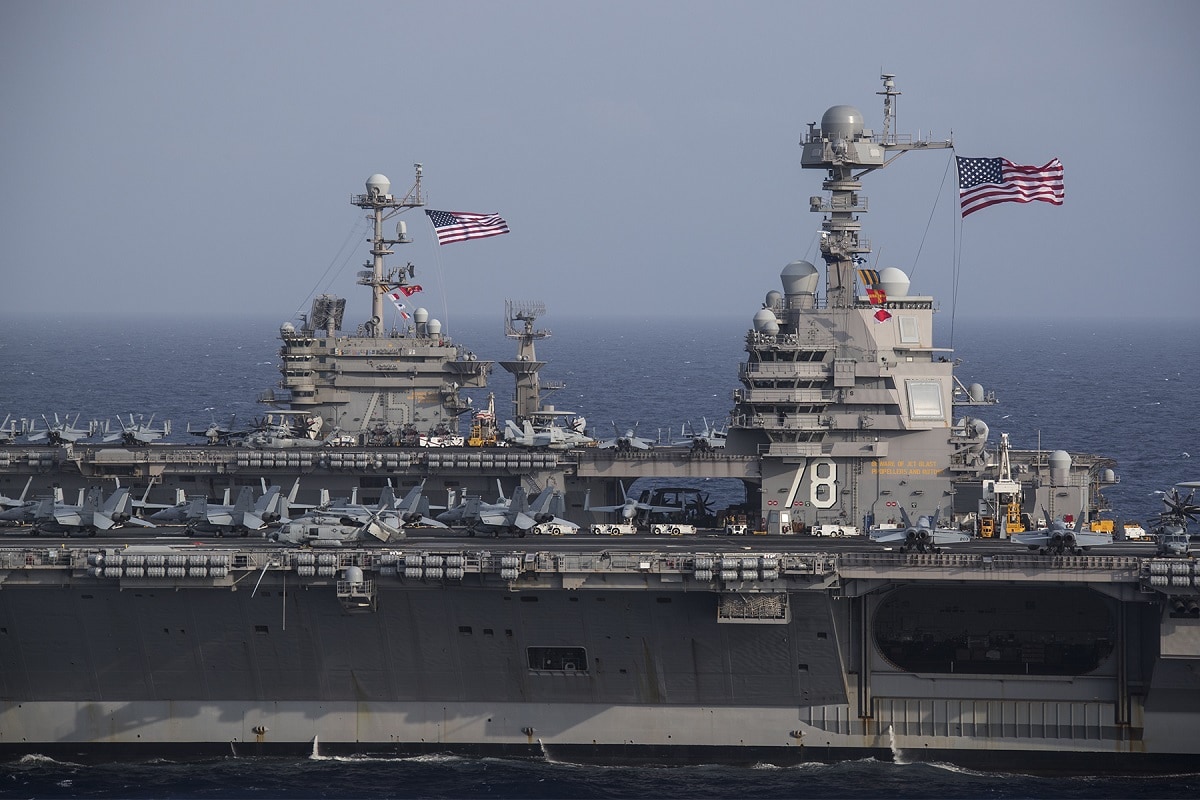Daniel Samet

In May, the Wall Street Journal reported that the F-35 sale to the United Arab Emirates (UAE) may not go ahead partly out of concerns Abu Dhabi may grant Beijing a military base on its soil.
A China that can project more power anywhere overseas is a menacing prospect. Especially so in the Middle East, which is home to six of the ten countries with the largest proven oil reserves.
So far the Biden administration has staked its Middle East strategy on withdrawing from Afghanistan, striking a nuclear deal with Iran, and reengaging the Palestinians. Yet far more important to U.S. national security is preventing China from acquiring a base in the region. Above all else, Washington’s Middle East hands should make this one of their top priorities.
Whether or not one thinks the region still matters to the United States, the fact is it matters tremendously to China. Beijing has a ravenous appetite for Middle Eastern oil and imports more of it than any other country. It also can’t get enough of Middle Eastern investment—according to the American Enterprise Institute, it poured almost $148 billion into the region from 2010 to 2020. Because the Sino-American competition has become a zero-sum game, Washington must push back against Chinese influence where it is most consequential.
The Middle East fits the bill. To protect its commercial interests there, Beijing is intent on expanding its military power. It sees a U.S. Navy whose surface fleet has atrophied to the point of unpreparedness and which is increasingly ceding ground to its Chinese counterpart. It also sees in Washington’s disengagement from the Middle East an opportunity to fill the void it won’t want to miss. Surely our Middle East policymakers don’t want the regional balance of power to tip even more in China’s favor.
If Beijing gets its hands on an installation in the UAE or elsewhere in the region, we should not overlook the risks for U.S. national security. China could forward deploy warships and carrier-based aircraft that would pose a direct threat to the Fifth Fleet in Bahrain. In so doing, it would strengthen Chinese deterrence at the expense of ours: responding to Chinese aggression over Taiwan or elsewhere in the First Island Chain might be far costlier with Chinese forces prepared to strike American ones a theater away.
For an idea of what else China would do with an outpost in the Middle East, all we need to do is look just a stone’s throw away in Djibouti. Beijing’s sole foreign military base has housed Chinese personnel who harass American pilots with laser pointers and attempt to sneak into a nearby U.S. base. Gen. Stephen Townsend, head of U.S. Africa Command, said during a Congressional hearing in April that Chinese aircraft carriers may soon dock in Djibouti. Get ready for more of the same.
One of the reasons the first Cold War ended how it did was the Soviet Union’s weakness on the seas. The way this one has begun, the same cannot be said of a China that boasts not only the world’s largest navy but also a growing store of warm-water ports. Tomorrow’s strategic planners won’t thank today’s if we keep letting our greatest adversary get stronger in waterways like the Persian Gulf.
At Washington’s disposal are several low-cost measures that can hinder China’s ambitions for a Middle East base. One is telling our regional allies and partners unequivocally that acquiescing to Beijing’s basing bid will imperil their security relationships with the United States and pressuring them to reevaluate their commercial ties with Beijing. The less leverage China has over these countries, the better. Should diplomacy fail, the Biden administration ought to consider sanctioning Middle Eastern entities that do business with the Chinese military.
With U.S. energy independence secured and radical Islamic terrorism contained, the time has come to shift our Middle East focus from oil and jihadis to China. If the Biden administration is serious about confronting Xi and his cronies, then it should update its regional strategy accordingly.
No comments:
Post a Comment